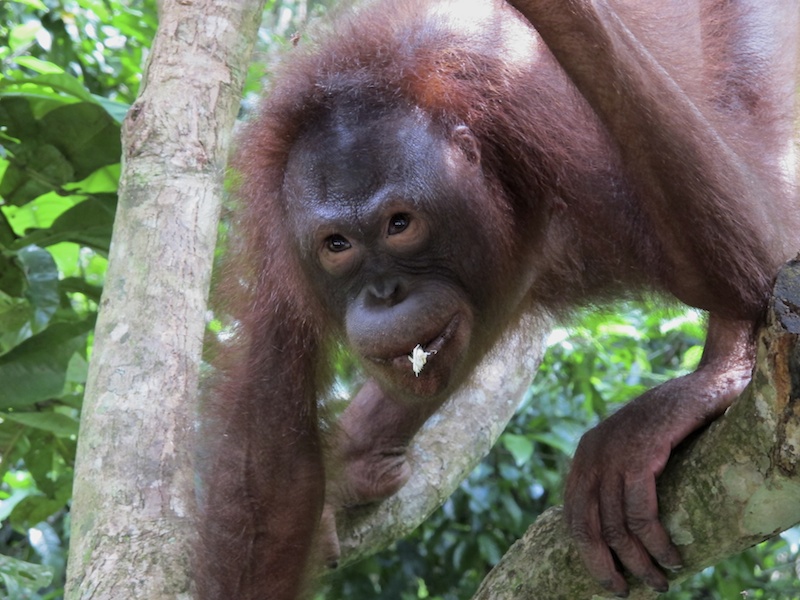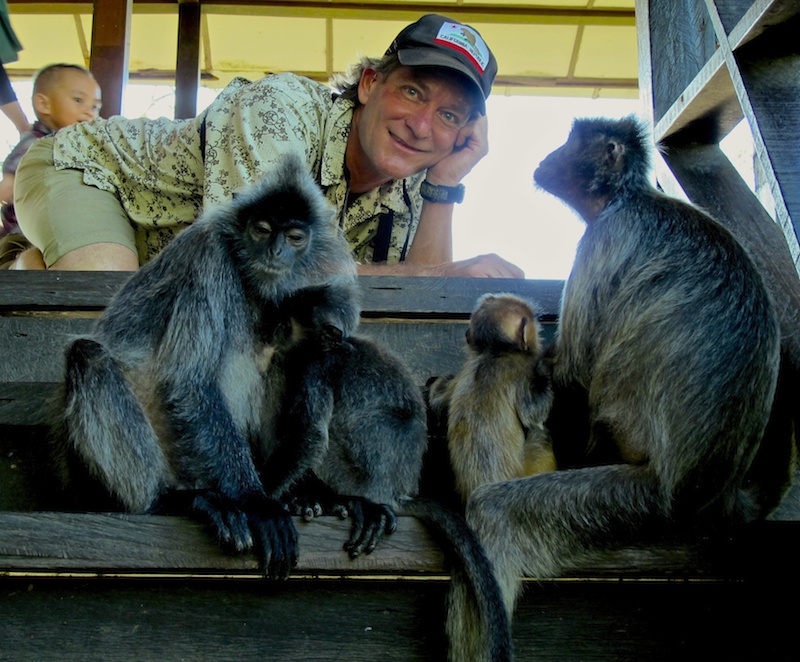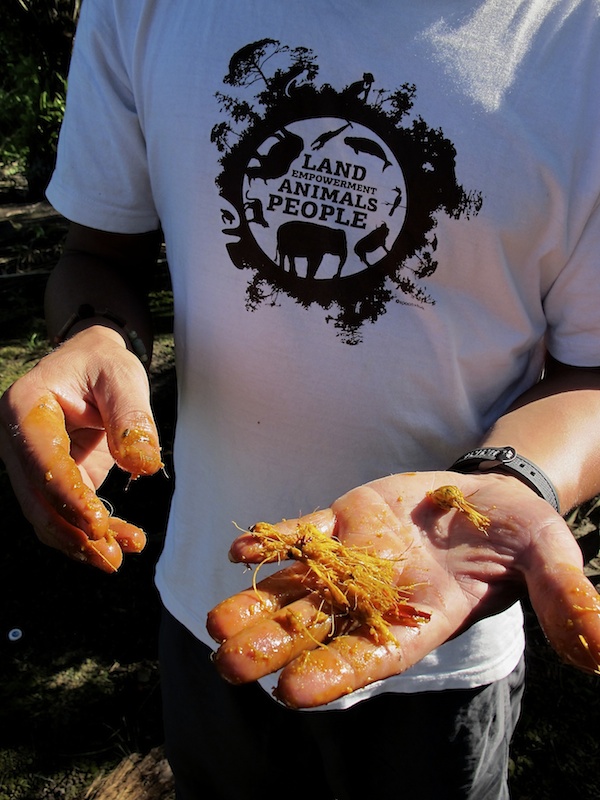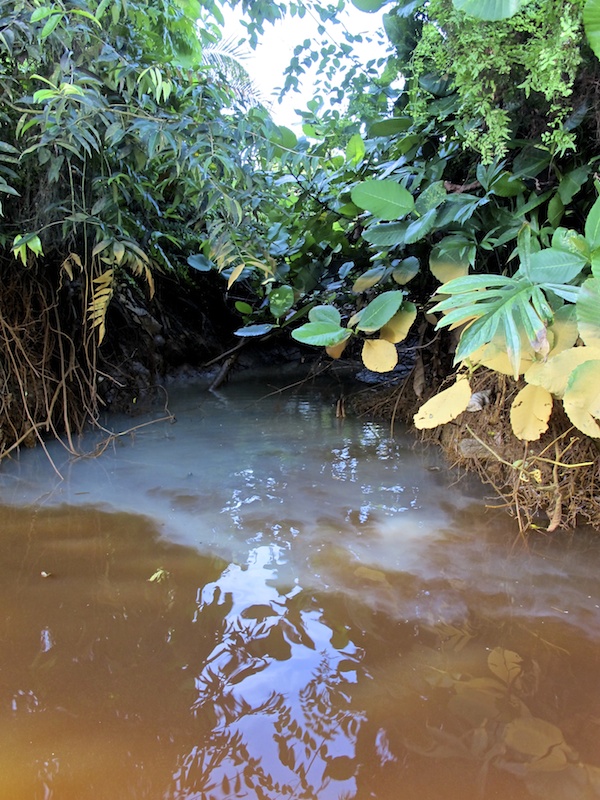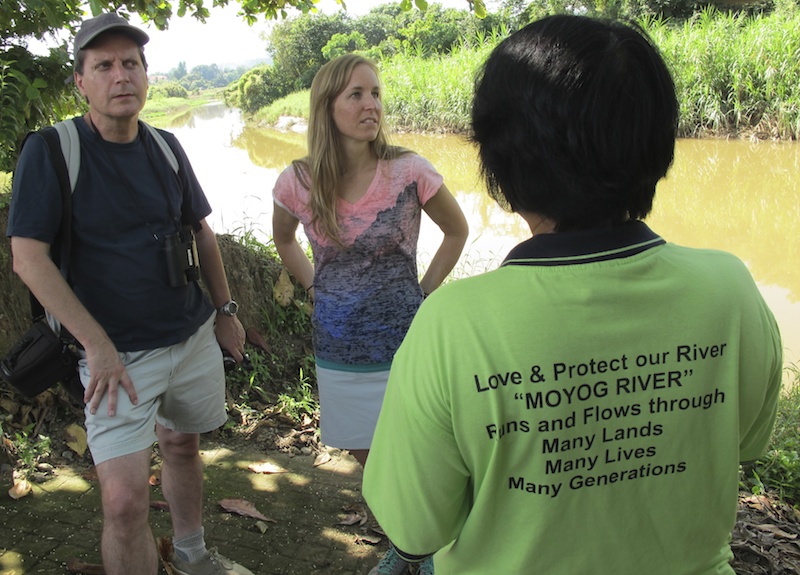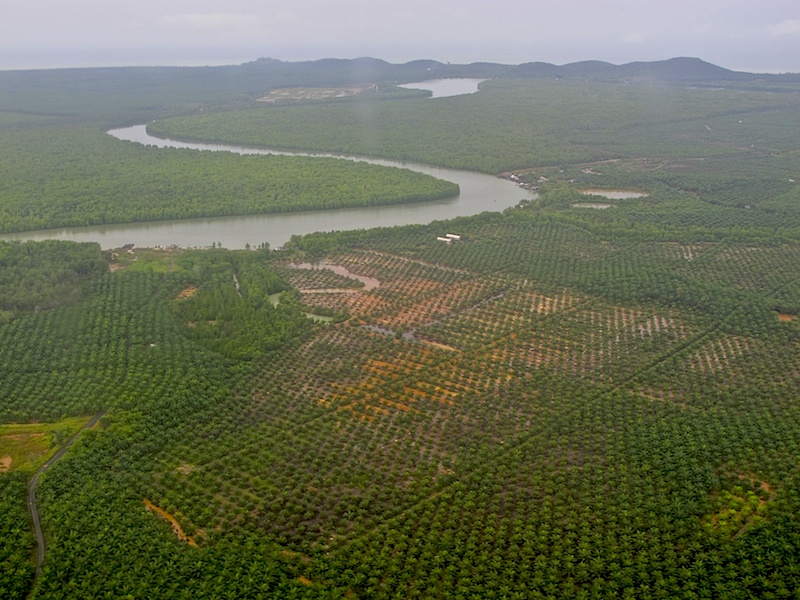by Janel Healy. Photos by Brock Dolman.
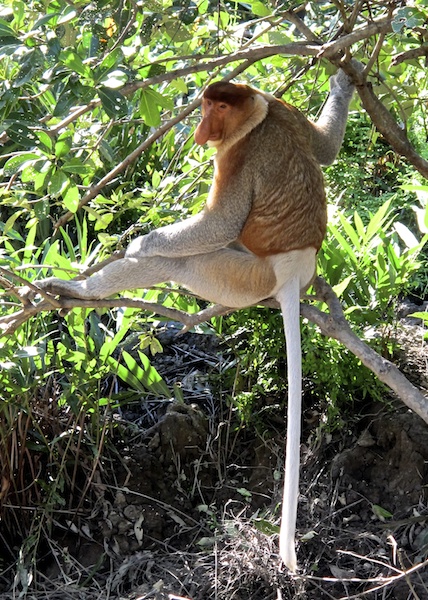
35% of the palm oil produced in the world comes from Malaysia, and 12% of that comes from the Malaysian state of Sabah on the island of Borneo, a biodiversity hot spot. Responsible palm oil production in this region would be a game-changer for quickly disappearing ecosystems, both on land and in water. The clearing of rain forests for palm oil plantations is releasing huge amounts of carbon into the atmosphere, as well as destroying the watersheds upon which indigenous peoples and many animals rely. Read this Washington Post article to learn more about the palm oil crisis.
Brock Dolman Gives Keynote at the Heart of Borneo Conference
In light of this issue, Co-Director of the OAEC WATER Institute Brock Dolman was invited to speak at the Heart of Borneo Conference in the Malaysian state of Sabah, hosted by the Sabah Department of Forestry in collaboration with the nonprofit organizations Forever Sabah and LEAP. Speaking to an audience of government agencies, dignitaries, public and private sector businesses and community groups, Brock’s keynote focused on the importance of “thinking like a watershed,” celebrating the potential for development trajectories that work with water, soil and land-use. Proposing integrated engagement with urban, forest and agricultural land uses, his presentation connected well with the state’s intention to require sustainable palm oil certification, announced at the conference. This makes Sabah the first place in the world to take a jurisdiction-wide approach to responsible palm oil production. Learn more about Sabah’s commitment towards certified sustainable palm oil in The Borneo Post and the Daily Express.
Palm Oil’s Effects on Watersheds
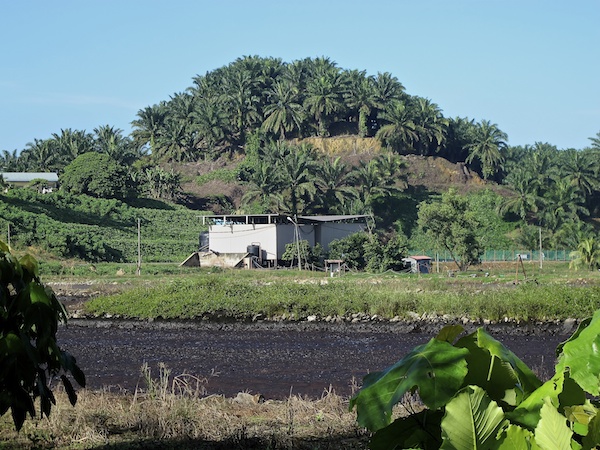
Processing palm nuts into oil creates a byproduct that is kept next to extraction mills in settling ponds. During heavy rains, the anaerobic effluent from these abundant lagoons can spill into rivers and streams, killing fish and even coral reefs once the toxic water reaches the ocean. Similarly, water draining out of large monocropped plantations can be rich in fertilizer and/or disturbed peat soil, causing algal blooms and widespread de-oxygenation and acidification. Communities that rely on fish for protein and income are being deeply affected by this devastation. Read more about this in the Daily Express.
It only takes a few poorly managed palm oil plantations to poison a watershed, hence the value of implementing sustainability standards for all producers in the state, which will ensure much less pollution.
The Community Solution
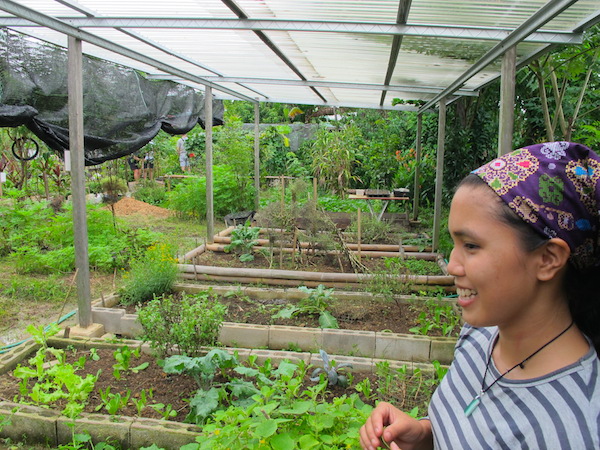
In addition to seeking policy change towards right action, part of OAEC’s Theory of Change (see our Vision & Strategy page) is to support community groups in building a “just transition” at the regional scale towards a more regenerative culture and economy. Thus, in the weeks after the Heart of Borneo Conference, Brock traveled around the region with Forever Sabah staff, visiting and consulting with community-based projects such as a local watershed group working to protect its rivers, as well as a permaculture-based community garden. In a village called Abai, a fishing community whose livelihood is threatened by nearby palm oil plantations, community members and leaders invited Brock to discuss in depth OAEC’s methods of democratic decision-making and governance as key tools for community resiliency.
OAEC is honored when communities around the world invite our staff to support their strategic development or facilitate their Resilient Community Design processes. We only work with communities that request our participation and collaboration, “composing with” instead of imposing our ideas and experiences.
Support
The WATER Institute is exploring how we can continue to support LEAP’s efforts to apply watershed approaches in the transformation of the state towards a diversified, equitable circular economy through Forever Sabah, including driving the transition towards more sustainable palm oil production.
- Donate to the WATER Institute with an OAEC General Donation
- Donate to LEAP
More Photos from Brock’s Trip:

